Conference Papers, Presentations, and Submitted Manuscripts
I'm interested in designing interactive systems and empirically exploring user interactions in Human-AI Collaboration, Educational Technology, and E-Business.
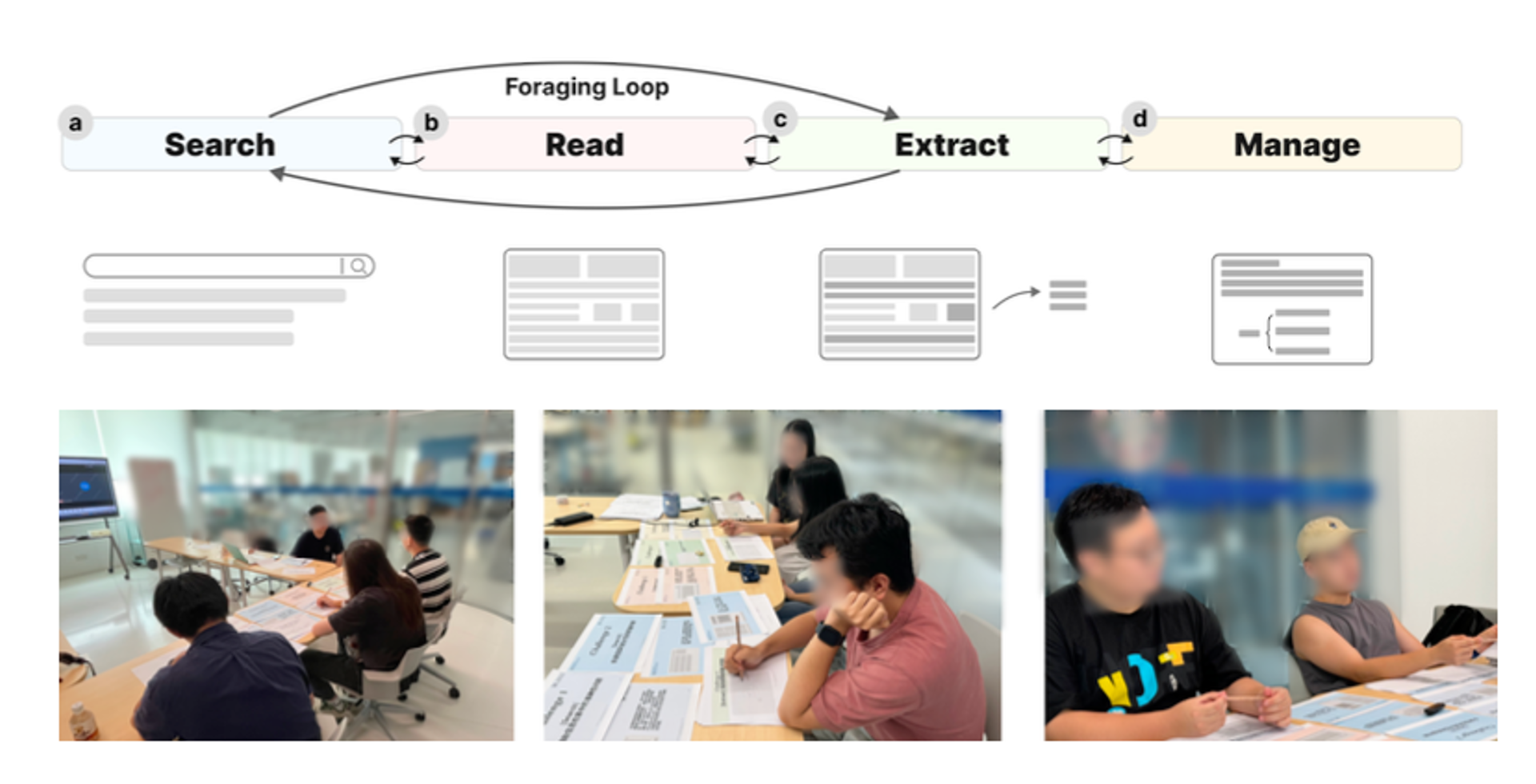 | Student Learning with AI in Multi-Source Information Environments (title modified for blind review)Anonymous Authors.Submitted to ACM CHI 2025, under review Abstract hidden for blind review. |
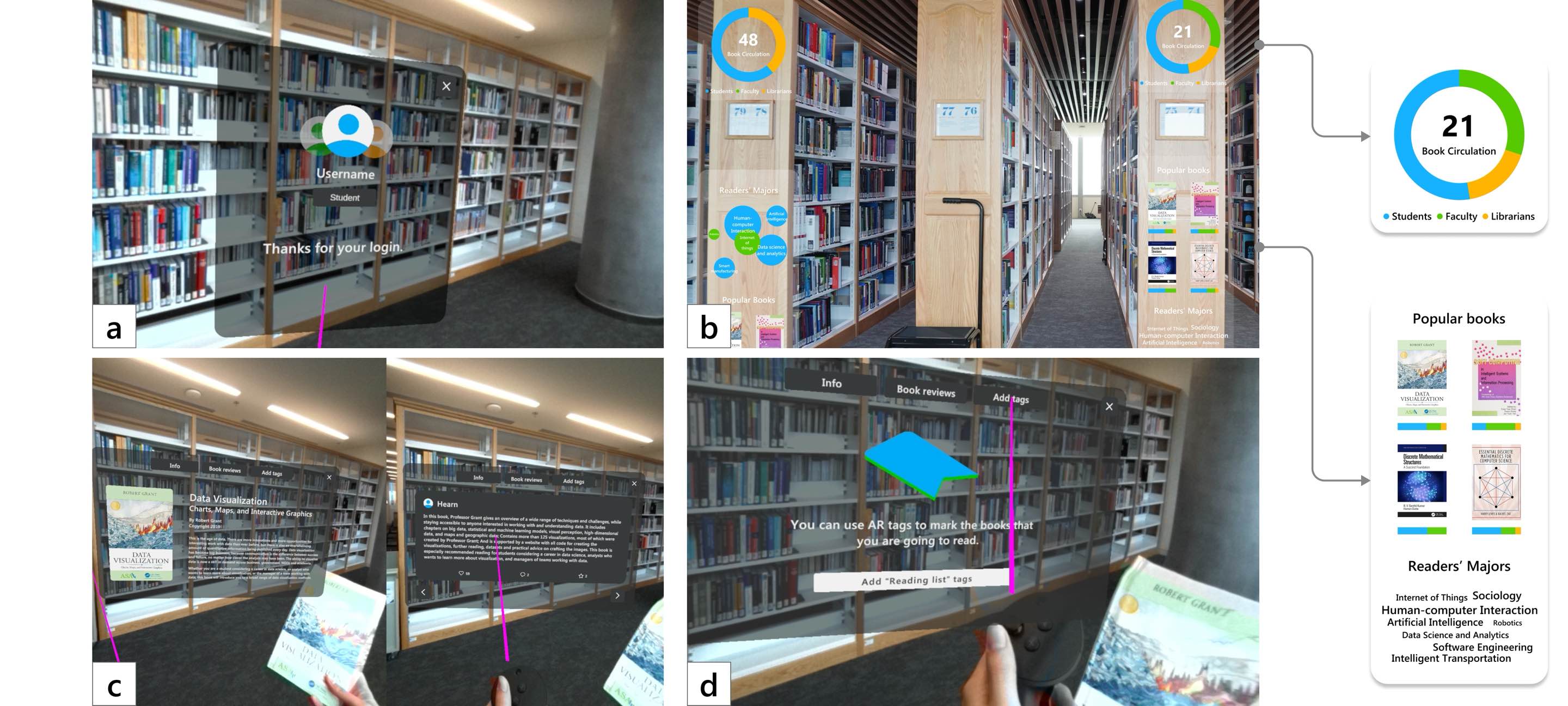 | Augmented Library: Toward Enriching Physical Library Experience Using HMD-Based Augmented RealityQianjie Wei, Jingling Zhang, Pengqi Wang, Xiaofu Jin, Mingming Fan* The 17th International Symposium on Visual Information Communication and Interaction (VINCI 2024), Hsinchu, Taiwan, December 2024. Despite the rise of digital libraries and online reading platforms, physical libraries still offer unique benefits for education and community engagement. However, due to the convenience of digital resources, physical library visits, especially by college students, have declined. This underscores the need to better engage these users. Augmented Reality (AR) could potentially bridge the gap between the physical and digital worlds. In this paper, we present Augmented Library, an HMD-based AR system designed to revitalize the physical library experience. By creating interactive features that enhance book discovery, encourage community engagement, and cater to diverse user needs, Augmented Library combines digital convenience with physical libraries’ rich experiences. This paper discusses the development of the system and preliminary user feedback on its impact on student engagement in physical libraries. |
 | From Hallucination to Trust: Leveraging Chain-of-Thoughts and Empathy in LLM-Empowered AgentMay WANG, Bingjie DENG*, Pengqi WANG The 24rd International Conference on Electronic Business (ICEB 2024), Zhuhai, China, Oct 2024. Large Language Models (LLMs) have significantly enhanced user interactions across various platforms, becoming indispensable in sectors like customer service for their immediate response capabilities and personalized assistance. Despite their transformative impact, LLMs occasionally produce hallucinations - factually incorrect, inconsistent, or entirely fabricated, despite appearing plausible or coherent, which might undermine user trust. This type of information manifests as either factuality or faithfulness hallucinations, where responses are factually incorrect or contextually irrelevant, respectively. This study explores different dialogue strategies, such as Chain-of-Thought (CoT) as logical reasoning and empathy expressions, to mitigate these issues. CoT reasoning enhances transparency in AI's decision-making process, potentially reducing the occurrence and impact of hallucinations. Empathy in responses aims to maintain user connection, softening the impact of misinformation and fostering a more forgiving user perspective. Based on the Emotion as Social Information (EASI) theory, this research examines how these strategies can enhance the user experience of LLMs in critical interaction scenarios, contributing to the development of sophisticated, trustworthy, and user-centric AI systems. The findings are expected to inform future designs of LLM architectures and interaction strategies that prioritize both accuracy and the emotional dynamics of user engagement, enhancing the overall acceptance and effectiveness of LLM technologies in everyday applications. |
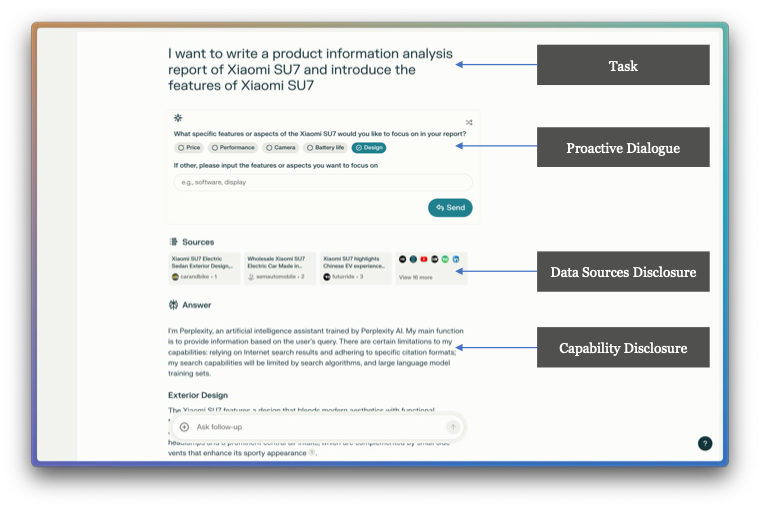 | Enhancing Well-Being and Reliance on AIGC-Powered Digital AssistantsMay WANG, Na JIANG, Pengqi WANG, Bingqing XIONG 2024 UNNC-CNAIS Paper Development Workshop, Ningbo, China, July 2024. (Conference Mentor: Atreyi Kankanhalli) The ability of AIGC-powered digital assistants to enhance productivity, user experience, and creativity, combined with their growing ubiquity and the accelerated pace of adopting AI, has made their integration imperative across a wide range of practical applications. The burgeoning market for Digital Assistants is on a trajectory to achieve a compound annual growth rate (CAGR) of 27.62% by the year 2030 (Technavio 2023). Digital assistants have the potential to positively impact user well-being by automating repetitive tasks, improving productivity, and providing personalized support. However, the extent of this positive impact needs to be empirically investigated. Users have expressed worries about the transparency of how digital assistants work and a fear of losing control of the technology. An important concern revolves around the perceived explainability and transparency of AIGC operations, often referred to as the "illusion effect". On the other hand, the design of empathetic and adaptive interaction can also improve perceived social support and well-being. Investigating these factors can inform the design of more supportive digital assistants. This research endeavor aims to delve into the intricate interplay between the explainability signals and the dialogue strategy in shaping user well-being and reliance on digital assistants. By unraveling these dynamics, we aspire to uncover strategies to refine the design of AIGC-powered digital assistants, thereby enhancing user satisfaction and contributing positively to their overall quality of life (Aimuengheuwa 2024). |
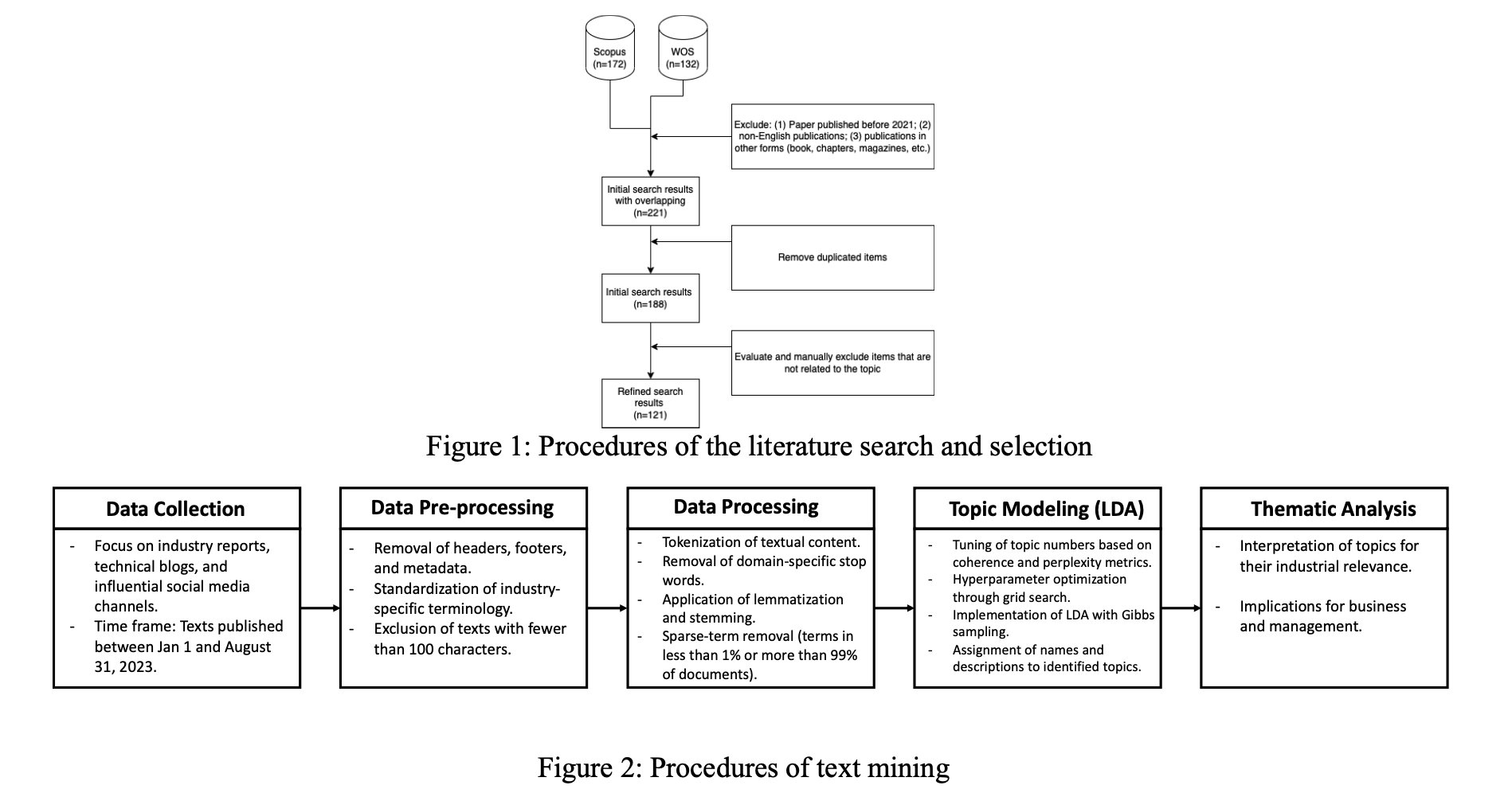 | Decoding Business Applications of Generative AI: A Bibliometric Analysis and Text Mining ApproachMay WANG*, Pengqi WANG The 23rd International Conference on Electronic Business (ICEB 2023), Chiayi, Taiwan, October 2023. The integration of Generative AI into business and management stands out as a pivotal transformation. This paper employs bibliometric analysis to scrutinize academic perspectives on the applications of Generative AI across diverse business research fields. Concurrently, text mining based on tweets and websites is deployed to probe cutting-edge industry applications of Generative AI in business and management. The Latent Dirichlet Allocation (LDA) topic modeling method unveils the profound potential of Generative AI, i.e. 1) creating new interfaces for service providers and personalized experience; 2) creating new content to augment human creativity; 3) improving efficiency and productivity, and 4) enabling more new applications, business models and use in the practical business applications. Delving into the contemporary research topics in information systems, marketing, management, and other business research, this study undertakes a comprehensive bibliometric and thematic analysis of integrated findings from both contemporary academic research fields and business application spheres to identify the research gap and explore future research context in GenAI. Moreover, this study underscores the ethical and practical challenges that emerge, advocating for interdisciplinary study on GenAI. The paper concludes by providing suggestions for future research, underscoring the importance of combining technological expertise with a human-centered approach. |
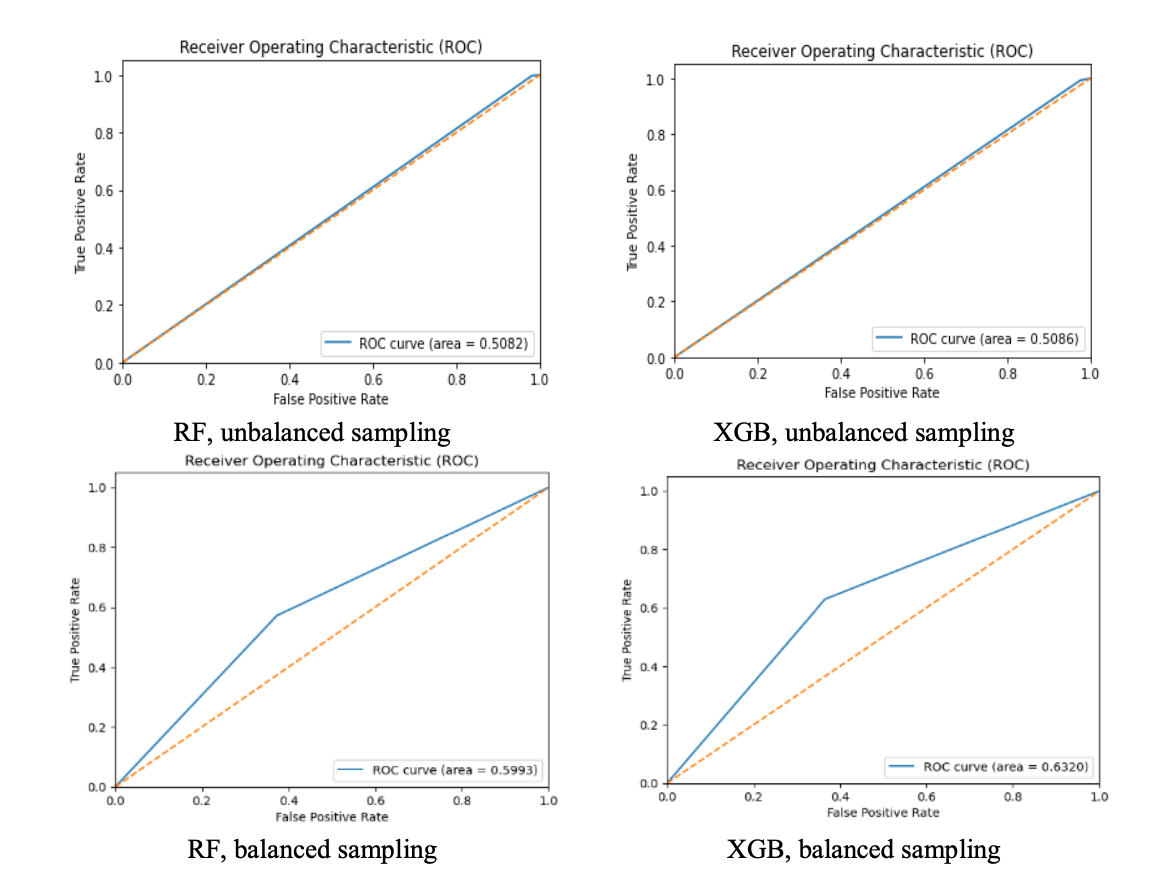 | Unmasking Deception: A Comparative Study of Tree-Based and Transformer-based Models for Fake Review Detection on YelpPengqi WANG, Yue LIN, Junyi CHAI IEEE International Conference on Systems, Man, and Cybernetics (SMC 2023), Hawaii, USA, October 2023. The increasing prevalence of fake online reviews jeopardizes firms' profits, consumers' well-being, and the trustworthiness of e-commerce ecosystems. We face the significant challenge of accurately detecting fake reviews. In this paper, we undertake a comprehensive investigation of traditional and state-of-the-art machine learning models in classification, based on textual features, to detect fake online reviews. We attempt to examine existing and noteworthy models for fake online review detection, in terms of the effectiveness of textual features, the efficiency of sampling methods, and their performance of detection. Adopting a quantitative and data-driven approach, we scrutinize both tree-based and transformer-based detection models. Our comparative studies evidence that transformer-based models (specifically BERT and GPT-3) outperform tree-based models (i.e., Random Forest and XGBoost), in terms of accuracy, precision, and recall metrics. We use real data from online reviews on Yelp.com for implementation. The results demonstrate that our proposed approach can identify fraudulent reviews effectively and efficiently. Synthesizing ChatGPT-3, tree-based, and transformer-based models for fake online review detection is rather new but promising, this paper highlights their potential for better detection of fake online reviews. |
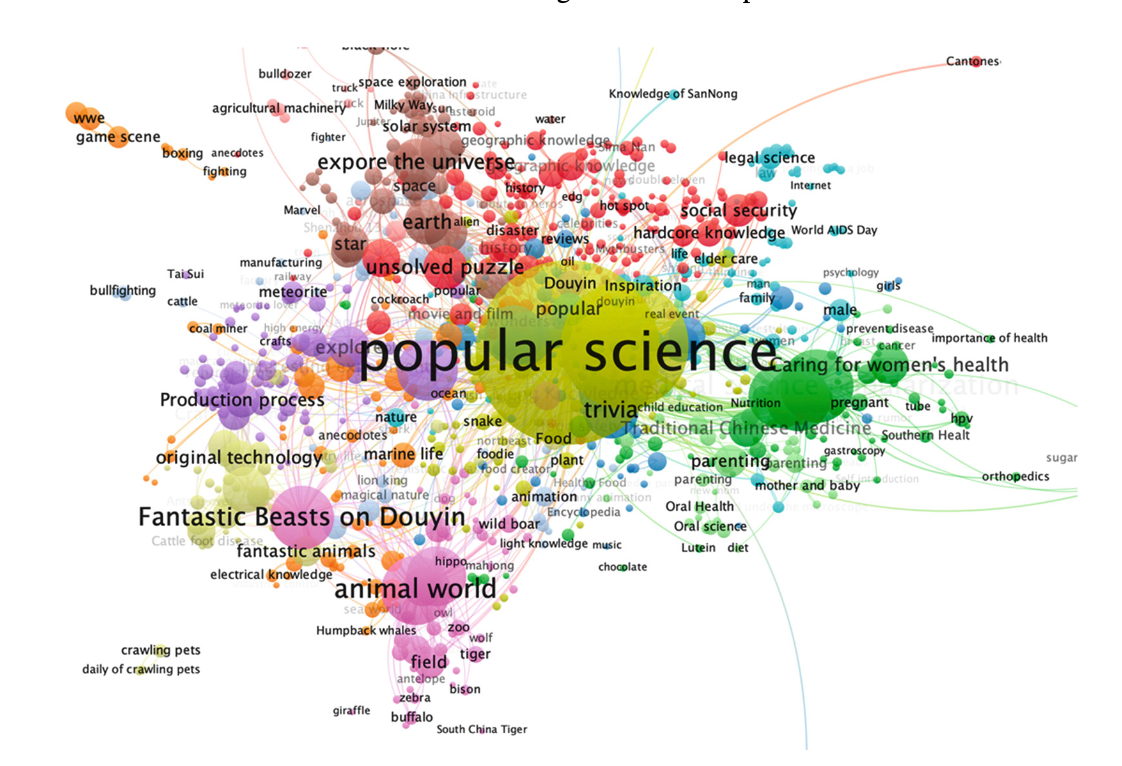 | Assessing the Content Topics of the Educational Videos on Tik Tok for Science CommunicationPengqi Wang, Mengli Yu, Yadong Liu International Seminar on Education, Management and Social Sciences (ISEMSS 2022), Chongqing, China, July 2022. Short video platforms like Tik Tok are becoming an increasingly crucial educational platform that fosters learning on demand with educational science videos. Educational videos are perceived as a productive strategy to enhance the users’ scientific knowledge and even are applied in some academic scenarios. This study provides an overview of science communication videos on Tik Tok information management and assesses the content topics based on user engagement, time, creator, and textual features. Seven main content topics are identified: Healthcare, Trivia, Nature, Astronomy, Social Science, Engineering, and Agriculture. Further findings demonstrate that topics vary significantly in terms of user engagement features: Topics on Healthcare and Trivia receive more likes, comments, and shares, whereas Social Science, Engineering, and Agriculture attract fewer engagements. Moreover, videos on the Healthcare topic have shorter durations, more followers, more concise video titles, and a smaller number of hashtags. We further elaborated on each topic, combined with the existing literature on related fields of information management. |
